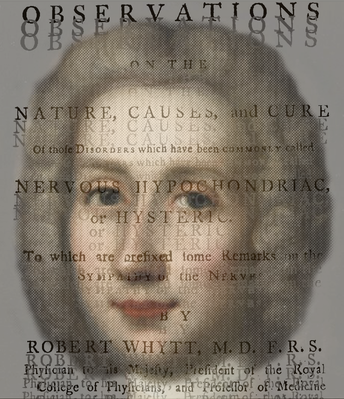Robert Whytt1714–1766
The emphasis on the functions of the nerves and brain was maintained by Whytt, who studied anatomy under Monro (primus) after obtaining his arts degree at St. Andrews University. He took his medical degree at Rheims and studied in London and Leyden before returning to Scotland to practice medicine. He was appointed to the chair of the theory of medicine at Edinburgh when only 33 years old, and occupied it for the remainder of his relatively short life. Whytt devoted his energies to physiology; more particularly, he examined the activity of the nervous system in a variety of its expressions – both voluntary and involuntary. He is most noted for his work on the involvement of the spinal nerves in involuntary responses to stimuli, which set the scene for the study of reflexes in the nineteenth century. Whytt showed that the involuntary actions occurred with only small amounts of the nervous system intact. Further experimental support for this was derived from the localized operation of a pupil reflex (which became known as Whytt’s reflex) and pupil dilatation. His interpretations of these reflex phenomena brought him into conflict with Albrecht von Haller which extended his reputation throughout Europe. He is shown in the title page of his book on Observations of nervous diseases (1765). Amongst these were descriptions of vertigo: “Many people of a delicate, nervous, and vascular system, after stooping and suddenly raising their head, are apt to be seized with a vertigo, which is sometimes accompanied by faintness. In this case, the vessels of the brain being too weak, seem to yield more than usual to the weight of the blood, when the head is inclined; and afterwards, when it is suddenly raised, and the blood at once descends towards the heart, those vessels do not contract fast enough, so as to accommodate themselves to the quantity of blood remaining in them: At the same time the brain, on account of its too great sensibility, is more affected than usual, by any sudden change in the motion of the fluids through its vessels.” This reflects the desire to seek accounts in terms of nervous function rather than Haller’s notions of irritability. This was succinctly summarized in his statement: “Since, in almost every disease, the nerves suffer more or less, and there are very few disorders which may not in a large sense be called nervous, it might be thought that a treatise on nervous diseases should comprehend almost all the complaints to which the human body is liable”.
